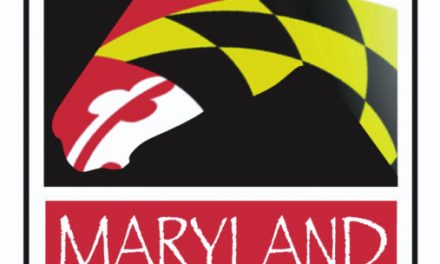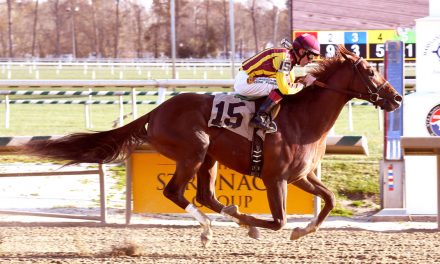In the endless series of lawsuits regarding exactly where slots will go in Anne Arundel County, a judge has sided with the Cordish Company against the Maryland Jockey Club.
In case you have not been following the continuing slots debacle, or are a tad confused as to “Who’s on First, What’s On Second,” the elevator summary is as follows:
– The Maryland Jockey Club failed to follow the correct procedures when applying to the Maryland State Video Lottery Commission for the right to have slots at Laurel Park in Anne Arundel County.
– Meanwhile, the Cordish Companies followed the required procedures in their application to the VLC to open a slots casino near Arundel Mills Mall in Anne Arudenl County.
– Anne Arundel County has no provisions in its zoning codes to allow for slots anywhere, so it had to create zoning for slots; the Anne Arundel County Commission approved two zoning options, one allowing slots only at the race track and the other allow slots anywhere in the County within the bounds described in the amendment to the Maryland State Constitution which allowed for slots.
– When it came time to sign one or both bills into law, the Anne Arundel County Executive decided to choose the options that aligned with the Maryland State Constitution…and that was the option to allow slots at either the Laurel Park site or the Arundel Mills site.
– The Maryland Jockey Club took exception to this, and launched a petition drive to move the new zoning law to a referendum, in order to let the citizens of Anne Arundel County decide whether or not to zone for slots at both Laurel Park and Arundel Mills. MJC was successful in gathering enough signatures to move the zoning approval to referendum.
– Since then the Cordish Companies have been exploring every avenue possible to shut down the referendum – in order to allow the zoning law to stand as is (slots at either Laurel or Arundel Mills).
And now, apparently, the Cordish Companies have found a successful avenue. According to the Daily Record: “Anne Arundel County Circuit Court Judge Ronald A. Silkworth sided with Cordish’s argument that the Maryland constitution bars the challenge because the constitutional provision and laws allowing for slots were designed to raise money. Appropriations measures are not subject to referendum under the state constitution, Silkworth said.”
Maryland horse people have been very divided by the referendum issue. On the one hand, there is the issue of loyalty, of supporting the equine-related business (the Maryland Jockey Club) rather than the non-equine related business (the Cordish Companies) – despite that the equine-related business is owned by a non-equine related business, MI Development (which has expressed the possibility of developing Laurel Park if the racetrack fails to be profitable)…there is just that tendency to be loyal to “our” Jockey Club.
Then there is the philosophical issue of, if we are going to have slots, slots should be confined to existing gambling establishments, e.g. racetracks…that new gambling establishments do not need to be created.
But then there is pragmatism…the Maryland Thoroughbred industry needs slots now, not later…and somewhere, anywhere, is better than nowhere. And many Maryland horse people are aware that, were the Jockey Club to succeed in raising enough opposition to slots at Arundel Mills (to defeat the zoning law in referendum), in so doing, they are simultaneously imperilling the possibility of there ever being slots anywhere in Anne Arundel County, even at Laurel Park. Opposing the current law that allows slots at Arundel Mills also means opposing slots at Laurel Park.
Ah, but MJC says, if they are successful at killing slots at Arundel Mills, there is nothing to worry about; MJC will make sure a new law gets passed that will allow slots at Laurel Park. This is cold comfort coming from the organization that didn’t get their slots application submitted in the first place. If MJC had gotten its application and the accompanying fee correctly submitted on time, we wouldn’t be having these issues now.
Regardless, here is where we are at the moment: MJC tried to push the slots zoning law to a referendum; Cordish sued to stop the issue from going to referendum, and the judge agreed, so as of today, there will be no referendum.
But of course, MJC is going to appeal the decision.
Suffice it to say, no matter where Maryland horse people stand on the MJC v Cordish issue, we all just want to be able to move on, without moving on to another state in order to run one’s Thoroughbred business. But we continue to wait, and the Thoroughbred industry continues to slowly suffocate.
To read more, please visit:
The Daily Record, June 29, 2010
The Daily Record, June 25, 2010
Jockey Club Spends More on Lobbying Than ANY Other Maryland Business
According to the Daily Record:
The Maryland Jockey Club spent the most on lobbying — $345,000 — from Nov. 1 to April 30, according to reports filed with the State Ethics Commission. The horse racing organization was trailed by the Maryland Hospital Association, with $327,000, and Pepco Holdings Inc., which spent $323,600.
In the cycle that covered the 2009 session, Constellation Energy Group Inc. captured the top spot, shelling out nearly $681,000. The Jockey Club followed with $660,000 and the Maryland Association of Realtors Inc. finished a distant third, tallying $405,000 in lobbying expenditures.
(To read the entire article, please visit: http://mddailyrecord.com/2010/06/24/spending-on-lobbyists-is-down-but-still-a-lot/)
You know, when the Maryland Jockey Club spends more money on lobbyists than say, oh, Constellation Energy, something is just not right.
And it certainly begs the question: wouldn’t it have been cheaper for the Jockey Club (or its parent company, currently referred to as MI Development, but at the time known as Magna Entertainment) to have just paid the required fee when they originally submitted their slots application? But no…supposedly they didn’t have the money, but look at all the money they have spent since then; in addition to these lobbying bills, they have spent money on lawsuits, on the referendum, on and on…
And still…we the horse people wait…











